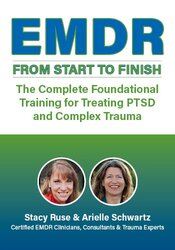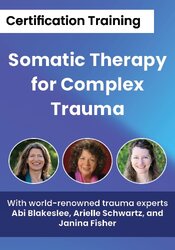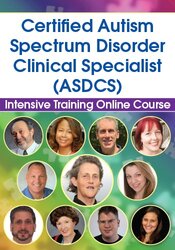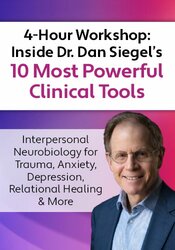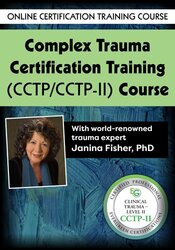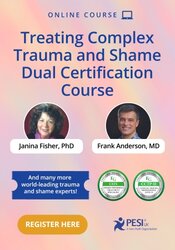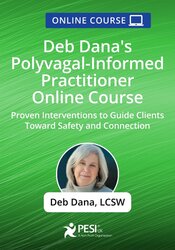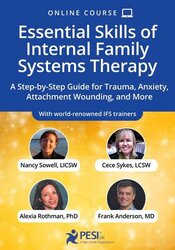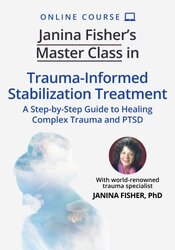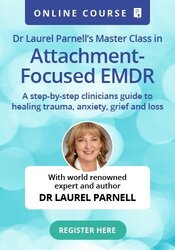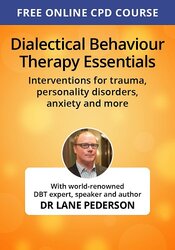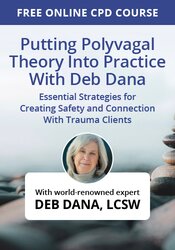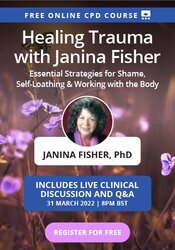Enrol in an online course today for flexible, self-paced learning—no fixed schedule required. Plus, enjoy lifetime access to course materials for convenient revisiting.
Featured Online Courses:
Access cutting-edge training programs from leading clinical experts – available when, where, and how you want it!
Discover today’s most effective interventions and insight to help your clients thrive.
What your Colleagues are Buying...
Online Course
Comprehensive EMDR skills training to conduct all treatment start to finish. PLUS, training on...
Value: £1,122.50 *
£179.99
Online Course
Frank Anderson’s Master Class in Internal Family Systems Therapy
Value: £999.98 *
£129.98
Online Course
Learn foundational body-based techniques, including somatic experiencing skills, breathwork,...
Value: £1,598.95 *
£179.99
Online Course
Learn what’s new, what’s working, and what’s just around the corner in autism intervention!
Value: £799.00 *
£229.99
Online Course
Complete IFS Therapy Immersion: Integrating the Internal Family Systems (IFS) Model Across...
Value: £967.08 *
£125.99
Online Course
Tammy Nelson brings you a comprehensive program on integrating sex and couple’s therapy....
Value: £1,029.46 *
£179.99
Upcoming Live Events
17 Mar, 2026
Live Video Webcast
£359.99
17 Mar, 2026
In this two-day Patterns of Developmental Pathways (PDP) Certification Training, you’ll...
£359.99
Live Video Webcast
28 Apr, 2026
This April, join Dr. Dan Siegel as he teaches his 10 most powerful brain-based tools—the same ones...
£0.00
Online Course

16 March, 2026
Live Video Webinar
This trauma certification training combines the power of IFS therapy and EMDR to give you the confidence you need to work with the toughest trauma cases right away
£0.00
This trauma certification training combines the power of IFS therapy and EMDR to give you the confidence you need to work with the toughest trauma cases right away
£0.00
Become Certified Today
Online Course
Learn what’s new, what’s working, and what’s just around the corner in autism intervention!
Value: £799.00 *
£229.99
Online Course
Complex Trauma Certification Training Level 1 & 2 (CCTP/CCTP-II) Course with Janina Fisher
Value: £1,380.56 *
£239.99
Online Course
The horrifying truth is that violence and trauma are so pervasive, all women are affected by them...
Value: £1,199.81 *
£149.99
Online Course
Learn foundational body-based techniques, including somatic experiencing skills, breathwork,...
Value: £1,598.95 *
£469.99
Online Course
Treating Complex Trauma and Shame Dual Certification Course
Value: £1,736.94 *
£149.99
Online Courses
Online Course
Deb Dana's Polyvagal-Informed Practitioner Online Course: Proven Interventions to Guide Clients...
Value: £999.98 *
£129.98
Online Course
Essential Skills of Internal Family Systems Therapy: A Step-by-Step Guide for Trauma, Anxiety,...
Value: £999.98 *
£129.98
Online Course
Learn foundational body-based techniques, including somatic experiencing skills, breathwork,...
Value: £1,598.95 *
£469.99
Online Course
Janina Fisher’s Master Class in Trauma-Informed Stabilization Treatment
Value: £999.98 *
£129.98
Online Course
Value: £699.98 *
£129.98
Free CPD
Online Course
Interventions for Trauma, Personality Disorders, Anxiety and More
Value: £116.99 *
£0.00
Online Course
Essential Strategies for Creating Safety and Connection With Trauma Clients
Value: £116.99 *
£0.00
Online Course
Step-by-step procedures for healing trauma, anxiety, depression and more
Value: £19.99 *
£0.00
Online Course
Essential Strategies for Shame, Self-Loathing & Working with the Body
Value: £116.99 *
£0.00
CPD Resources
Our mission is to provide professionals like you with practical and valuable tools, strategies, and resources to assist with the great work you do. Find expert tips, helpful worksheets, demonstration videos, CPD, news, and more.
Popular Topics
Get exclusive email offers!
Join our email list and be the first to hear about special offers, exciting new programmes, and events.



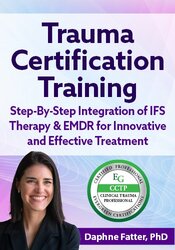










![Lucky Sale UK Set 1 850X250[1]](/media/ijbktzo1/lucky_sale_-_uk_-_set_1_850x250-1.webp?anchor=center&mode=pad&width=850&format=webp&quality=95)

